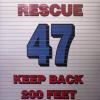Sign in to follow this
Followers
0

EMT Instructors getting paid...
Started by
PFDRes47cue,
-
Recently Browsing 0 members
No registered users viewing this page.

Started by
PFDRes47cue,
No registered users viewing this page.